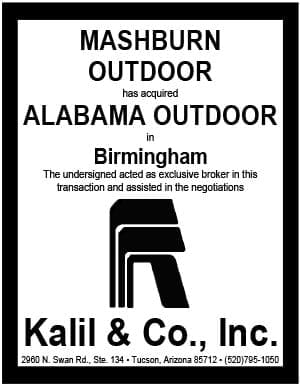Insider received a call from an investor with the following question:
I bought a piece of property at a distressed sale. There’s a billboard on the property which is leased to an out of home company. There are back taxes due on the property. I want to create an easement for the billboard and give it to myself and then sell the property and use the proceeds to pay the back taxes. If I form the easement first without paying off the taxes and the property goes for a tax foreclosure will the easement be wiped out?

To answer this question and to provide the general rules on tax and debt foreclosure sales, Insider contacted Houston billboard transaction and litigation attorney Richard Rothfelder, who had the following comments.
The short answer to the investor’s question is, yes, the tax foreclosure will likely terminate the easement. Indeed, tax foreclosure sales by governmental entities, as opposed to debt foreclosures by lenders, almost always result in the termination of junior interests (such as leases and easements) encumbering the foreclosed fee simple property, regardless of when those interests were executed and recorded.
By contrast, the general rule on non-governmental debt foreclosure, is that if the lease or easement was executed and recorded before the mortgage or other debt secured by the property encumbered by the previous lease or easement, an eventual foreclosure on that debt will not terminate the lease or easement. Instead, the purchaser at the foreclosure sale acquires the property subject to and encumbered by the lease or easement. The reverse is also the case, where the mortgage occurs before the lease or easement, and then the mortgage is later foreclosed, those subsequently executed and recorded leases and easements are terminated in the foreclosure sale.
In order to avoid these undesirable consequences, the owner of the easement or lease ought to secure a subordination and attornment agreement from the prior lender, thereby contractually guarantying that the lease or easement survives such a foreclosure sale and the new owner assumes those junior interests. If such an agreement can’t be obtained from the lender, certainly avoid paying up front for the easement or lease, and exposing that money to forfeiture upon a potential secured debt foreclosure. Unfortunately, the government is not going to agree to a subordination and attornment provision, and indeed, there’s not much the easement or lease owner can do to avoid termination of his interest in a tax foreclosure. A provision under which the junior interest owner secures the right to notice of the tax foreclosure sale and the opportunity to discharge the delinquent taxes affords some protection. In the situation described above, I’d agree with the investor’s original suggestion of carving out an easement for the billboard, selling the rest of the property, and using the sales proceeds to pay the back property taxes.
[wpforms id=”9787″]
Paid Advertisement


















Mr Rothfelder agrees with the investor that he should create the easement, sell the property and pay of the taxes. What happens when the new property owner does not pay the taxes and the property is sold at tax sale. Based on his opinion the easement is at jeopardy again. I am not sure if this is a state issue. Our state statues states all easements survive tax sale. also what makes a Junior easements.